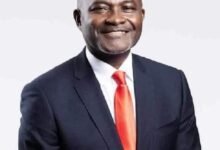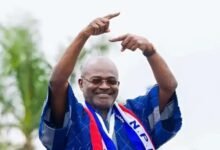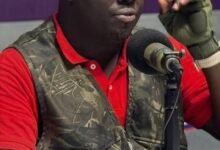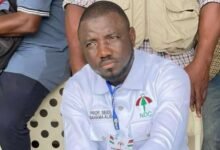‘Address ineffective communication to retain power’

Some political scientists have asked the leadership of the New Patriotic Party (NPP) to address ineffectiveness in the party’s communication strategy if it intends to break eight years of political party rule in order to retain power in the 2024 elections.


However, they indicated that the party, which struggled to win the 2020 elections, as reflected in the current hung Parliament, was gradually losing touch with the grassroots and needed to address its ineffective and inefficient communication strategy.
According to the political scientists even though the NPP was aiming at breaking the two-term (eight-year) rule of governments since 1992, by ensuring for the first time, the party stays in power for a third term by Election 2024, they cited a disconnection between the communication machinery of the government, the party, its followers as well as the citizenry.
“Ineffective communication strategy can cost the NPP in the 2024 elections if practical steps are not taken urgently to address the communication gap by expanding its electoral college as part of reforms to make it stronger, curb monetisation of party elections, and separate party leadership from the government,” they pointed out.
They were Dr Kwame Asah-Asante, a Political Scientist at the University of Ghana, Dr Smart Sarpong, a Political Researcher at the Kumasi Technical University, Institute of Research, Innovation and Development and Prof. Kobby Mensah, a Political Strategist and Marketer, University of Ghana Business School.
Contributing to discussions on the NPP’s goal for 2024 after they elected new leaders, Dr Asah-Asante said breaking the eight for the NPP would be a daunting task because in recent times, the government and the party had struggled to defend the government’s policies, programmes and social interventions which was worrying.
Dr Asah-Asante decried some major programmes of the government, which gave the NPP popularity in the 2020 elections were currently ‘suffering’ and cited the free Senior High School, Nation Builders Corps, School Feeding, and the One-District-One-Factory needed to be looked at and their outcomes well-communicated to the public.
Dr Sarpong, noted that it would be difficult for the party to rule for a third consecutive time due to some factors, including the current socioeconomic hardships, corruption, and uneven distribution of infrastructural development across the nation and unemployment and admonished the leadership of the party to localise strategies and resources to empower those at the grassroots.
Prof. Mensah suggested processes for expanding the universal suffrage system to avoid monetisation before and during elections since political parties were disadvantaged due to making party flag bearers’ defacto leaders and people were afraid to speak to them when they perform poorly. -GNA






